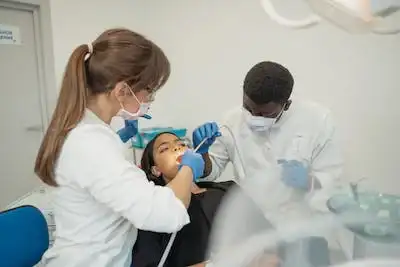Exploring Alternative Dental Care Providers:
Dental Schools: Universities with dental programs often offer clinics staffed by supervised students, providing high-quality care at significantly reduced costs. These clinics typically handle routine procedures like cleanings, fillings, and basic extractions.
Community Health Centers: These federally funded centers cater to underserved communities and offer dental services alongside other medical care. Fees are often based on a sliding scale according to income, making them a viable option for low-income individuals and families.
Free and Charitable Clinics: Numerous non-profit organizations and faith-based groups operate free or low-cost dental clinics, particularly in underserved areas. These clinics may offer limited services but can provide essential care like emergency pain relief and basic procedures.
Public Health Departments: State and local health departments often have programs offering free or discounted dental care for eligible residents, particularly children and pregnant women. Contact your local department to inquire about available programs.
Considering Alternative Dental Financing Options:
Dental Savings Plans: These are not insurance plans but membership programs offering discounts on dental services at participating providers. Annual fees are typically much lower than traditional insurance premiums, making them a budget-friendly option for routine care.
Payment Plans: Many dentists are willing to work with uninsured patients by offering payment plans or in-house financing options.
Negotiating Costs: Don't be afraid to politely discuss payment options with your dentist. Some may be willing to offer discounts for upfront payments or cash settlements.
Prioritizing Preventive Care:
Remember, an ounce of prevention is worth a pound of cure. Consistent preventive care can significantly reduce the need for costly dental procedures in the future. Here are some tips for maintaining good oral health without insurance:
Practice good oral hygiene: Brush your teeth twice a day and floss daily to remove plaque and bacteria.
Schedule regular dental checkups: Even without insurance, aim for at least one checkup and cleaning per year to identify and address potential issues early.
Seek immediate care for dental emergencies: Don't ignore dental pain or infections. Prompt treatment can prevent complications and save money in the long run.
Additional Resources and Tools:
Toothwisdom: This website from the non-profit Oral Health America provides a national directory of affordable dental programs and resources.
National Association of Free and Charitable Clinics: This organization helps locate free and charitable clinics offering dental care in your area.
Medicaid: If you meet income eligibility requirements, Medicaid may cover some or all dental services.
Dental Lifeline Network: This non-profit provides financial assistance for dental care to low-income individuals and families.
Remember, you are not alone in navigating dental care without insurance. By exploring alternative providers, financing options, and prioritizing preventive care, you can find affordable solutions to maintain a healthy smile. Don't hesitate to reach out to resources and organizations available to help you access the dental care you need.
Word count: 1515
I hope this information provides a helpful starting point for finding affordable dental care without insurance. Remember, prioritizing oral health is an investment in your overall well-being, and there are options available to make it accessible for everyone.

